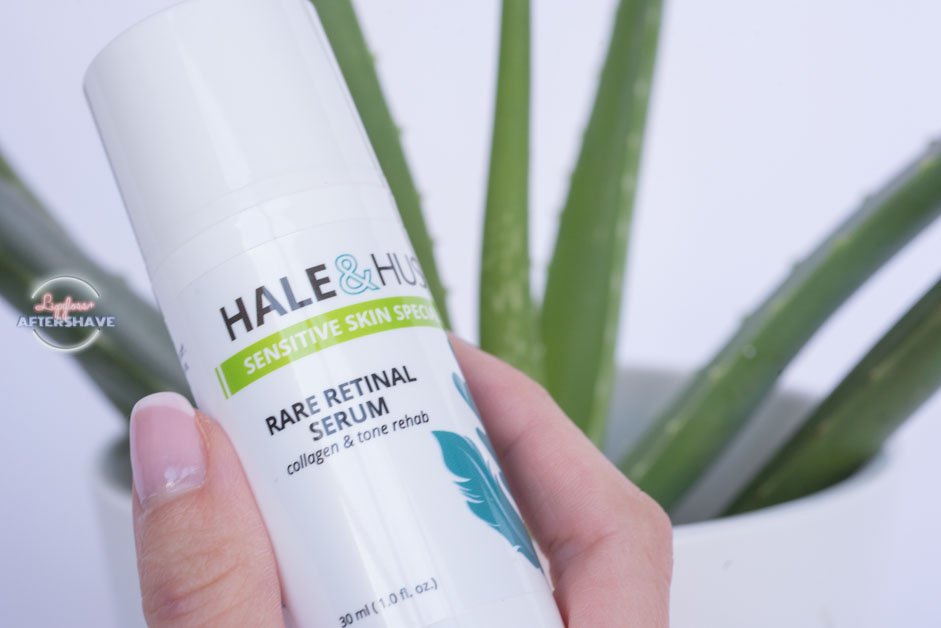How Science is Used in Medical Skin Care
Medical Skin Care Pro, Hillary Kahan of The Derm Group is our Featured Guest Blogger for this Advice From Our Experts Column. In 2020, “Research and Markets” estimated the global market for Cosmetic Skin Care to be estimated at $145.3 Billion, only to increase to $185.5 Billion by 2027, thereby proving that the esthetic industry continues to BOOM amidst Covid-19. This also means that consumer options, both online and in stores, are literally endless. For practitioners like myself, product science is paramount when we are evaluating for backbar and retail. Proven scientific technology, ingredients, and delivery systems equate to increased efficacy while keeping clients compliant as they realize results.
Products + Treatments Used In A Medical Skin Care Practice
Products
Customizing home care routines as part of a medical skin care treatment plan is essential for optimal results. However, as new ingredients are introduce to the market, savvier clients have just as much, if not more information than we do. Therefore, I continue to focus on active ingredient and science-based technology. An example of which, is continuing to recommend Vitamins A and C, which I know deliver.
Correcting Dull Looking Skin
As we age, some processes begin to slow down, including the skin’s cellular renewal. This “slow down” causes a build-up of dead skin cells on the surface leading to a dull, lack luster look. Vitamin A, in topical form, essentially tells our new healthy skin cells to “speed it up”, rise to the surface quicker, encouraging cellular proliferation and promoting a healthy, strong epidermis. Simply put, Vitamin A makes our skin act younger!
Get To Know Vitamin A
Forms of Vitamin A have been studied as early as the 1600’s in relation to night blindness, but it was not until 1954 that it was studied in topical form with intrinsic skin aging followed by the groundbreaking invention of Retin-A by Dr. Albert Kligman in 1969.
Retin-A displayed that retinoic acid is beneficial in treating acne and by default aid in anti-aging, thereby proving that Vitamin A can promote healthier, smoother skin with less occurrence of breakouts. Since then, thousands of over-the-counter strength skincare products with Vitamin A derivatives including retinaldehyde, retinyl palmitate, and retinol, have flooded consumer markets.
Take a look at many ingredient lists, “retinol palmitate” may be listed, but is it first? Most likely not. I frequently recommend Vitamin A in the form of retinoic acid, a physician-only product, to my clients, more specifically Obagi Medical’s Tretinoin. Commonly known to cause skin irritation, it’s essential to provide education on retinoid usage as part of a nighttime regimen, and more importantly to be progressive rather than aggressive ensuring tolerability and compliance.
Other Vitamin A medical skin care products that are available to estheticians are, Hale & Hush’s Rare Retinal, which is ideal for sensitive skin clients. Barry told me that he loved his facial at Kate Sommerville in LA and that they gave him a sample of the Kate Sommerville +Retinol Vitamin C Moisturizer that he loved. There’s also the Murad Retinol Youth Renewal Night Cream. Jenni told me that she loves the Vitamin A+ from BiON Skincare.
PRO TIP! To Minimize Vitamin A Irritation
- Begin with a weaker strength retinoid, allowing skin to acclimate
- Begin usage every other night for an approximate 3 week time period before progressing to continuous nightly use
- Use an amount equivalent to the size of a green pea, sufficient for an entire face
- Mix retinoids with an oil-free moisturizer before applying the mixture to skin
- Apply a thin layer of an oil-free moisturizer before applying retinoid, as the molecular size of retinoid will allow it to penetrate through the moisturizer
Now that our skin is functioning like that of an 18-year-old, it needs to be repaired and protected. The environmental contaminants our skin encounters on a daily basis cause oxidative damage which we see in the form of dark spots, uneven texture, and sagging skin from loss of elasticity. Even now as I write this article, blue light emanating from my laptop screen is scavenging my skin’s cellular DNA. Daily use of topical antioxidants, including my favorite Vitamin C, fight those free radicals from the day’s start, working to promote the strengthening of collagen.
How Vitamin C Fights Free Radicals
Vitamin C is the most widely used antioxidant in skincare, available in serums, creams, and even washes. It fortifies our cells, reinforcing our barrier function, and inhibits Tyrosinase production, the enzyme essential for pigment production, therefore aiding in preventing the formation of dark spots. It is also the most unstable of antioxidants, making its structure so important to ensure efficacy in skincare. Vitamin C is most beneficial to skin cells when in the form of L-Ascorbic Acid. L-Ascorbic Acid is water soluble and a small enough molecule that it may travel to reach the cells it needs to protect. It is still unstable, and therefore best in powder form and stored in a dry, dark space to prevent oxidation.
Barry and Jenni told me that they are obsessed with these medical skin care Vitamin C products c difference from dmSkincare, Vitamin C Ester Brightening Serum from Perricone MD, Super C Serum from Sesha Skin Therapy, Citrus Super C Serum from Dawn Lorraine Skincare and The Cream from Augustinus Bader.
Delivery Systems
The Intercellular Delivery System
I refer to the 500 Dalton Rule when researching new ingredients, which states that for proper absorption, the molecular weight must be less than 500 Daltons. The actives most commonly found in serums, must penetrate the stratum corneum layer of the epidermis to ensure efficacy. Another brand of medical skin care that I love is SkinBetter Science, They use Interfuse Technology, a patented intercellular delivery system that delivers actives to the skin via the lipid matrix. Interfuse relaxes surface tension to allow penetration and utilizes a double trans-lipid system. The larger molecules (like peptides) are encased with a lipophilic coating made from essential fatty acids and have two pathways to travel. I am confident recommending SkinBetter’s Eye Cream because of this technology which allows enhanced absorption of Vitamin C to brighten, caffeine to relieve puffiness, and messenger peptides to relax crow’s feet.
Transcellular Delivery Systems
In-office procedures such as Microneedling are transcellular delivery systems. Microneedling create pathways for larger molecular weighted ingredients through the stratum corneum. Peptides and hyaluronic acid serums, which commonly exceed 500 Daltons have a direct line when applied using a microneedling device to first create tiny holes in the skin, or micro channels.
Post microneedling, the skin is immediately intensely red followed by a sunburn like feeling for about 24 hours. I am a HUGE supporter of LED therapy and love utilizing it for post-procedure inflammation. LED lightwaves relieve the skin’s inflammatory response, and since we just wounded the skin in a controlled way, LED will activate fibroblasts to promote healing. Celluma PRO LED panels provide a touch free way to reduce immediate redness, encouraging healthy skin.
Learn About Delivery Systems
Treatments
Medical Skin Care Systems To Infuse Products
For those clients looking for minimal downtime, I turn to Hydroplus+ by MedSpa Distributors.
Hydroplus+ combines Diamondtip microdermabrasion technology, made famous by Diamondtome, with Hydro Wands for added Infusion to enhance product penetration. Diamondtome offers complete customization for my clients via various coarseness and sized wands, allowing me to provide unique treatments with varied levels of aggressiveness. After gently clearing away dead skin cells, Hydro Wands coupled with Diamontome’s vacuum technology, enhance delivery of patented serums ranging from Kojic Acid and Arbutin to Hyaluronic Acid. Skin Recovery Science’s C2S Serum formulated with Vitamin C and Salicylic Acid is a must for my oilier textures.
Barry and Jenni told me about The Element Facial, from DermaJEM which uses Hydro-dermabrasion and Oxygen infusion. It’s one of their Next Generation Facials. DermaJEM has harnessed the power of the mechanical exfoliation of diamond microdermabrasion and the chemical exfoliation of hydrodermabrasion and put them together in the Double Light and Double Exfo Hydro tips. Which allows you to give your clients deep and effective exfoliation without irritation. With the Ruffle Wave tips you can offer hydrodermabrasion to your more sensitive clients
Oxygen infusion is the perfect follow up to the hydrodermabrasion. With its soothing, cooling, and healing benefits it really helps to calm the skin after the stimulation of the hydrodermabrasion. What’s best is that the serums you apply with the oxygen gun stay on the skin and don’t end up in your waste jar! So all of your skin-loving ingredients stay where you need them to be, on the skin!
Science and technology are utilized on a daily basis in esthetics and medical skin care. Proven systems allow practitioners to leverage treatments, offering the most effective protocols with enhanced results. If only I knew than what I know now, I would have taken a drastically different approach to high school chemistry class.


HILLARY KAHAN
Hillary is a South Jersey native who joins together her business degree from Drexel University with her passion for aesthetics as the Cosmetic Lead and Regional Practice Manager for a NJ based dermatology group. Hillary continues to practice as a licensed esthetician focusing on results-driven skincare. She specializes in customizing skincare programs which include home care and in-office procedures for her patients, utilizing various chemical peels, dermaplaning, microneedling, and the latest in technologies. Science based ingredient knowledge is of utmost importance to Hillary as she guides her patients in making skincare easy and effective.
She is a certified laser technician, experienced in body contouring, and works with her dermatology providers in recommending non-invasive cosmetic procedures.
Hillary’s approach to community engagement and cross promotions drives practice revenue and patient retention. She enjoys working alongside her team and has a hands-on management style, whether it is in the trenches on a busy day or providing continuous education sessions.
Outside of the office, Hillary spends time with her husband and two silly boys, who have grown to appreciate her constant use of home skincare devices and don’t seem to notice her wearing an Iron Man like LED mask anymore!


